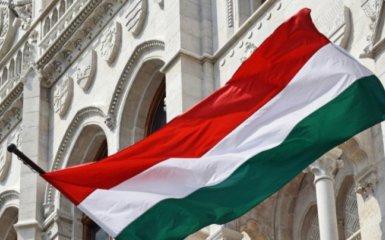On Monday, July 1, Hungary began its presidency of the European Union. In particular, the country took over the organisation of the work of the EU Council for the next six months.
Points of attention
- Hungary began its presidency of the EU Council with the slogan Make Europe Great Again, which could change the dynamics of work in the European Union.
- Hungary's priorities include issues of competitiveness, defense policy, enlargement and migration, which may be reflected in the country's direct participation in EU geopolitics.
- Hungary often clashes with Brussels, which can affect the country's relations with the European Union and, in particular, financial aid to Budapest.
- The delay in military aid to Ukraine may be one of the effects of Hungary's presidency of the EU Council, given the position of the Orbán government and its interaction with Russia.
- Ukraine may face restrictions in cooperation with the EU due to Hungary's position, which requires additional efforts to strengthen relations with European partners.
Hungary began its presidency in EU Council
The slogan of the Hungarian presidency will be a modified but well-known phrase: "Make Europe Great Again." The Hungarian Presidency of the EU announced this.
Hungarian Minister for EU Affairs János Bóka presented the government's priorities for the next six months and emphasised that the Hungarian Presidency will act as an "honest broker" striving for constructive cooperation with all member states and European institutions, taking into account the EU's current challenges.
Europe is faced with the common challenges of war in our neighborhood, global competition, a vulnerable security situation, illegal migration, natural disasters, the impact of climate change and a [complex] demographic situation, Boka said.
Hungary began the presidency of the Council of the EU. What does this mean for Ukraine, and which issues did Budapest call priorities?
The activity program of the Hungarian Presidency in the EU will be built based on seven identified priorities:
adoption of the New European Agreement on Competitiveness;
strengthening of European defence policy;
a consistent and merit-based expansion policy;
stopping illegal migration;
shaping the future of cohesion policy;
farmer-oriented EU agricultural policy;
solving demographic problems.
By the end of 2024, the Hungarian Presidency plans to hold 1,500 meetings of EU Council working groups and organize 37 official ministerial meetings in Brussels and Luxembourg.
In addition, Hungary will host 230 events, most of which will occur in Budapest. Among them are 16 informal meetings of the Council of the EU, one informal meeting of the European Council, and a summit of the European Political Community.
Hungary often conflicts with Brussels
Hungarian Prime Minister Viktor Orbán is the first head of the temporary presidency of the EU Council to publicly attack and humiliate the EU's own institutions.
In his speeches and interviews, he has repeatedly stated that the EU threatens Hungary's sovereignty, destroys its middle class and attacks the country's agricultural sector. That's why he said he must go to Brussels and "shake up the power structures there."
Never in the history of the EU has the Presidency of the Council had so many conflicts of interest as in Hungary, which is currently under Article 7 of the EU treaties against the fundamental threat that the Orbán government poses to the rule of law in the country.
The European Commission, for example, has initiated numerous procedures due to violations of legal norms. The European Court of Justice recently imposed heavy fines on Budapest for improperly applying EU asylum and migration laws.
A particularly sensitive issue is the tug of war between Orbán and European Commission President Ursula von der Leyen regarding financial aid to Hungary.
The EU has frozen 30 billion euros ($32.1 billion) in funding to Hungary because of the real threat of corruption in Budapest and because Brussels says Hungary's courts are no longer independent.
Delay in military aid to Ukraine
Hungary began the presidency of the Council of the EU: what does this mean for Ukraine, and which issues Budapest called priorities
Minister of European Affairs of Hungary Boka did not give any reason to hope for progress in the negotiations on Ukraine's accession to the EU, which Kyiv and Brussels started on June 25.
Hungary is refusing to allocate around €6.5 billion in EU military aid funds. Orbán's government has yet to specify whether it will exercise its veto power during its six months in office.
Orbán, who has maintained sound economic ties with Russia despite EU sanctions, has positioned himself as the only man fighting for peace ahead of the European Parliament elections in early June.




